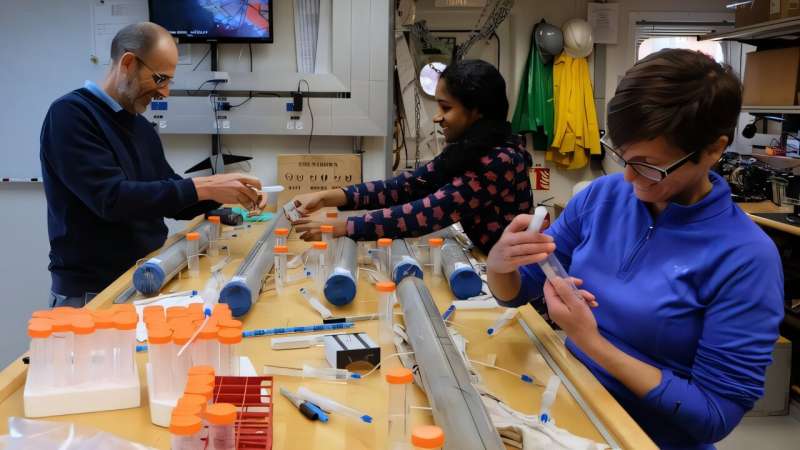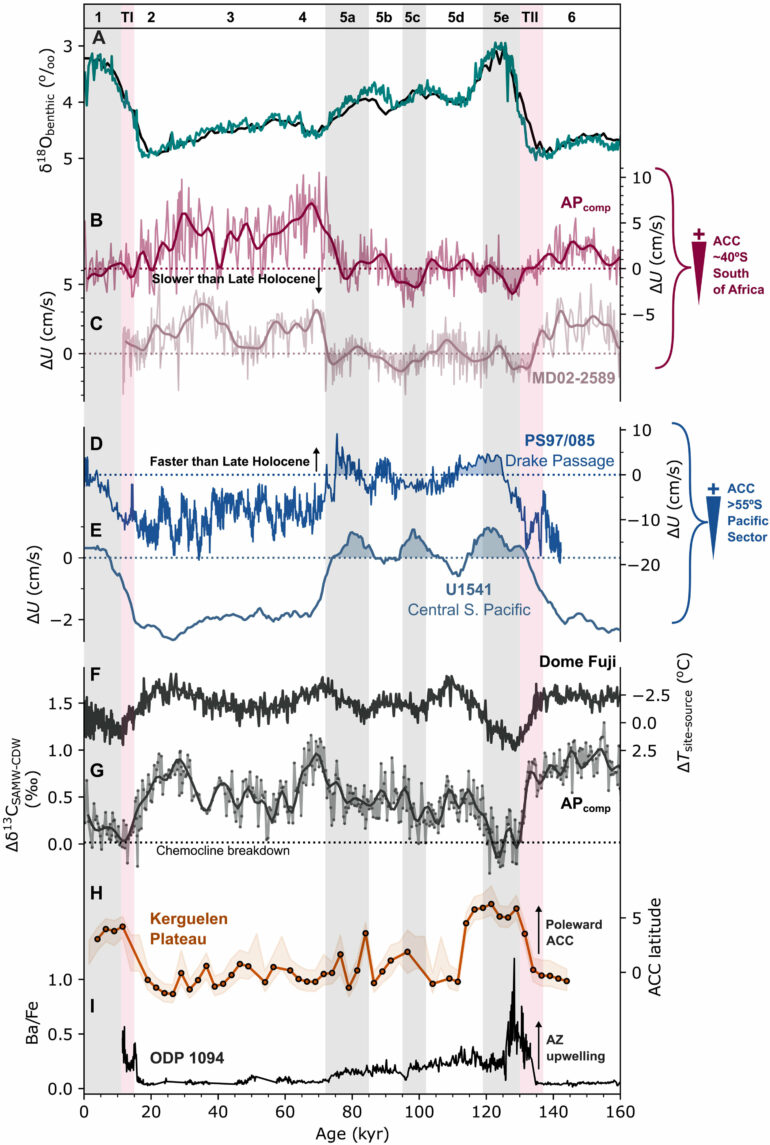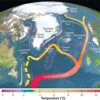Human-induced climate change is causing shifts in the world’s largest ocean current and westerly wind systems also seen during periods of ice age and warmer intervals in Earth’s history, researchers claim.
Their study highlights the role of the Antarctic Circumpolar Current (ACC) in regulating dynamics in the Southern Ocean and global climate patterns over the past 1.5 million years.
The international team, led by Cardiff University researchers, show how southern migration of the westerly winds and the ACC towards the pole during periods of past global warming increased the amount of natural carbon released to the atmosphere by the Southern Ocean.
The team warns that human-induced climate change has brought about a similar process, which is underway today and likely to continue under global warming without appropriate climate action.
Their findings, published in Science Advances, offer vital insights into how heat, salt, and carbon-rich waters flow, filling a critical gap in the understanding of ocean circulation and its relationship with past and future global climate changes.
“Our study highlights the complex interplay between ocean currents and climate patterns,” said lead author Dr. Aidan Starr, who carried out the research at Cardiff University during his doctoral study and as a research associate in the School of Earth and Environmental Sciences.

L-R: Ian Hall (Co-Chief Scientist, School of Earth and Environmental Sciences, Cardiff University), Nambiyathodi Lathika (Physical Properties Specialist, Ice Core Laboratory, National Centre for Antarctic and Ocean Research), and Rebecca Robinson (Inorganic Geochemist, Graduate School of Oceanography, University of Rhode Island) collect sediment interstitial water rhizon samples from the core. © Jens Gruetzner, Alfred-Wegener-Institut for Polar and Marine Research
The Southern Ocean plays a central role in the global uptake of heat and carbon, with approximately 40% of annual global CO2 emissions absorbed by the world’s oceans entering through this region.
This phenomenon is largely attributed to its unique upwelling and circulation characteristics.
The team reconstructed the speed of ocean currents near the bottom of the Southern Ocean, south of Africa, by measuring marine sediment core material



